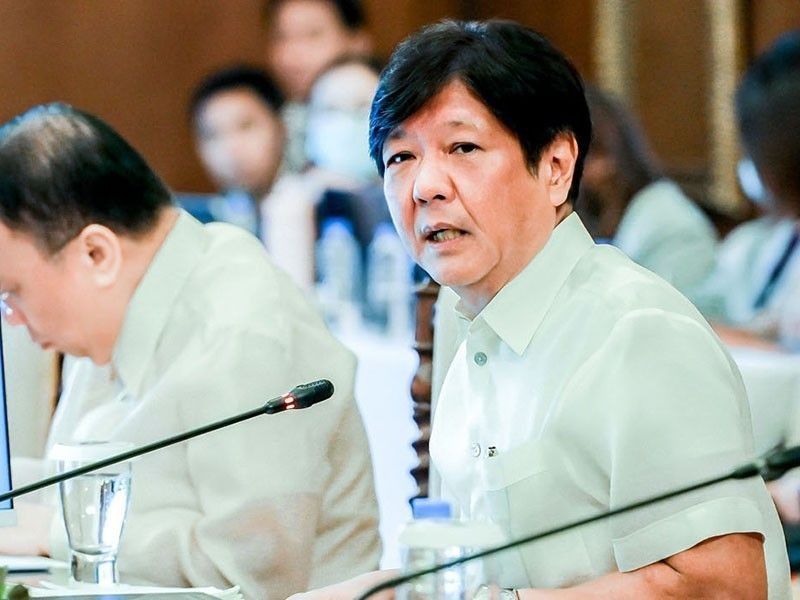
Manila, Philippines — President Marcos is traveling to Jakarta next week to join the 43rd Association of Southeast Asian Nation (ASEAN) Summit and related summits, where Manila is expected to push for statements on Beijing’s aggressive actions in the West Philippine Sea
Department of Foreign Affairs (DFA) Assistant Secretary Daniel Espiritu said Marcos would continue to promote a rules-based international order, including the United Nations Convention on the Law of the Sea (UNCLOS), especially in the South China Sea, during the summit set on Sept. 5 to 7.
“The Philippines will continue to uphold and exercise freedom of navigation and overflight in the South China Sea in accordance with international law,” Espiritu said in a press briefing yesterday at Malacañang.
The summit will be held as tensions grip the region over China’s recent maneuvers in the West Philippine Sea, including resorting to water cannon attacks to drive away Filipino ships on resupply mission to Ayungin Shoal, within Manila’s 200-nautical mile exclusive economic zone. China also released recently a new map with a ten-dash line that covered parts of Taiwan and most of the West Philippine Sea, the part of the South China Sea inside the Philippines’ EEZ and continental shelf, prompting the Philippines to file a diplomatic protest.
Asked if the Philippines would push for the inclusion of a statement on China’s actions in ASEAN’s joint communiqué, Espiritu replied: “The Philippines is definitely pushing for statements in that regard. But, of course, I cannot give you yet the final text of that because it’s still being negotiated.”
“There are ten countries and, in other statements there are external partners involved and it only takes one to object and you lose consensus. So, I cannot predict at this point,” he added.
Espiritu, who handles ASEAN affairs, said there are external partners who support the Philippines’ stance on the issue but could not say if it would be at the level of consensus.
“I cannot predict at this point what would be the outcome. It will change many times, depending on the compromise and the discussions,” he added.
In 2016, a Hague-based arbitral court ruled that China’s historic claims in the South China Sea, which covers about 90 percent of the strategic sea lane, have no legal basis. China has refused to recognize the landmark decision. which also affirmed the Philippines’ sovereign rights over its EEZ. Under the UNCLOS, states have sovereign rights to explore, exploit, and conserve and manage natural resources within their EEZ.
Calls for the completion of a binding code of conduct for South China Sea claimants have mounted in the wake of reports about Chinese ships driving away Filipino fishermen and harassing Philippine vessels in the area. But Espiritu admitted that the upcoming ASEAN summit may be too short to complete the COC.
“Most probably, we will have to wait, because we do not know yet the actual content of the COC and whether it’s good for all of us for it to be legally binding or not,” the DFA official said.
“Well, at most, there will be a report on what happened during the last meeting in the Philippines on the joint working group on the COC (code of conduct). But, nothing definitive yet in terms of whether it will be legally binding or non-legally binding, and other issues. It’s a very methodical process. We should not rush it,” he added, referring to the meeting hosted by the Philippines from Aug. 22 to 24.
Espiritu said ASEAN member countries would have to come up with a compromise every step of the way as they tackle the code of conduct.
“It has been happening for already a long time. So, I think it will take a little bit longer for it to be completed,” he added.
Philippines advocacies
Espiritu said the summit in Jakarta would include meetings with several of the regional bloc’s dialogue partners and summits of ASEAN-led mechanisms such as the ASEAN Plus Three Summit and the East Asia Summit. Marcos is also expected to participate in the opening of the ASEAN Indo-Pacific Forum, which will serve as a platform to tackle infrastructure projects and programs and priority cooperation areas.
According to Espiritu, Marcos is expected to attend 13 leader’s level engagements, 12 of them summit sessions with other leaders, including the plenary session, retreat session and separate meetings with China, South Korea, Japan, US, Canada, India and Australia.
“In these engagements, the President will continue to uphold and promote Philippine interests in ASEAN,” Espiritu said.
“He (Marcos) will highlight our advocacies in strengthening food and energy security, harnessing the potential of the digital and creative industries and MSMEs (micro, small and medium enterprises) and addressing the impacts of climate change among others,” he added
Marcos is also expected to emphasize efforts to protect migrant workers in crisis situation and to combat human trafficking. International issues will also be tackled, including the situation in Myanmar, the conflict in Ukraine and geopolitical rivalries in the Indo-Pacific region.
Espiritu said over 90 outcome documents are being targeted to be issued, adopted or noted during the summits. They include the ASEAN leaders’ declaration on strengthening food security and nutrition in response to crisis; individual joint statements on strengthening cooperation on food security between ASEAN, Australia, Canada and India; guidelines on the protection of migrant workers and family members in crisis situation; ASEAN leaders’ statement on the development of the digital economy framework agreement and a joint statement on climate change to the 28th session of the Conference of the Parties to United Nations Framework Convention on Climate Change.
